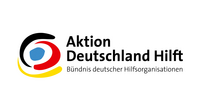Kenya May 2013

Final Report
From May 17th until June 1st the emergency pedagogic department of the Friends of Waldorf Education embarked on their fifth emergency pedagogic assignment in the Kenyan refugee camp Kakuma. The assignment’s main goals were the advanced training of local colleagues, the monitoring of the project’s progress and networking with UNHCR and other organizations to secure future financing for the project.
The Friend‘s emergency pedagogic project in Kakuma, which has been in existence for 18 months now, reports a steady growth. The project started out with 13 employees, a “child friendly space” at the “reception centre”, and the Songot kindergarten. Since then, 35 employees, most of whom are refugees themselves, perform the day-to-day work, which now includes a second “child friendly space” in the “protection area” and a program for “child friendly activities” at the camp’s primary schools.
On site, the positive impression of the project’s progress, which had been established in previous assignments, was confirmed: In all the project’s components a daily routine had been established and the children and adolescents were offered a variety of educational activities. The work was sustained by the children and adolescents’ trustful engagement with the employees, which was established through the staff’s consistent care and effort throughout the previous months. Work at the reception centre was particularly demanding, because a high number of refugees are once again seeking shelter at Kakuma. These people are fleeing from the civil war in Southern Sudan, which is presentently flaring up again. Most European media did not report on those events, however they add to the demanding reality at the Kakuma refugee camp.
The true misery in Kakuma cannot be measured by the mere number of refugees, but it is established through the variety of dramatic fates that are combined at the refugee camp. The story of a six year old Congolese boy, who is in emergency pedagogic care since early 2012, is an example for some of the fates: When he was four years old his parents were killed in a rebel attack on his home village. Neighbors took him along with them when they fled to Kakuma, where he was placed in the Songot kindergarten. His foster family at the refugee camp continually maltreated and abused him. When his foster mother scorched his lips with a burning stick because he insulted one of her children, “child protection”, an institution of UNHCR Kamkuma, took action and placed him with another family at the “protection area”. At the moment he is living in a secure environment, and takes part in the daily activities at the “child friendly space”; however it will take a long time before his psychological wounds can heal.
The assignment’s main focus was on the colleagues’ advanced training. Most of the employees live in Kakuma and have basic pedagogic skills; however they are not specialized in working with traumatized children and adolescents. In order to prepare them as well as possible, a two-week training program was devised. In the morning sessions new methods were taught, which the German team immediately applied in their practical work with the children. For better results the team members chose fields of work in which their work was particularly needed and in which the training of employees was perceived as particularly urgent. In the afternoon sessions, the groups had the possibility to expand on the methods they had learned in the morning and to discuss any questions that came up.
Apart from the general Waldorf educational approach, thematic focus was placed on circus pedagogy, which was applied in Kakuma for the first time and was particularly appealing to the older adolescents. Additionally, creative education focused on land-art or earth art, and painting and was accompanied by a curative educational consultation.
Dialogues with UNHCR, the UN refugee agency, were in part positive: Persuaded by the present emergency pedagogic work, the UNHCR granted financial support during the next years in order to keep the project going. Though those funds will not cover all the expenses, a foundation was laid by the UNHCR on which the Friends can base their future work. Though the team will still have to depend on donations, the Kakuma experience once again proves that the support of the emergency pedagogic unit is a worthwhile effort.
After two weeks of demanding and intense work, the assignment was ended with a public presentation at which all groups presented elements of their daily activities. With many parents present and in a cheerful atmosphere, there was also the option to spread the word on the emergency pedagogic work and to further promote it throughout Kakuma. The public presentation was accompanied by an art fair at which the products of the past two weeks in form of pictures, sculptures and figurines were displayed to the crowd.
The Friends of Waldorf Education sincerely thank all team members who dedicated their man power and enthusiasm to this project on a voluntary basis. The project’s positive progress and the response of children and adolescents in Kakuma proves the assumption that there is still a great demand for trauma-pedagogic offers to be true. The Friends see this as their motivation to apply all their strength to secure the existence and the advancement of emergency pedagogy in Kakuma.
Malte Landgraff
Karlsruhe, June 2013


